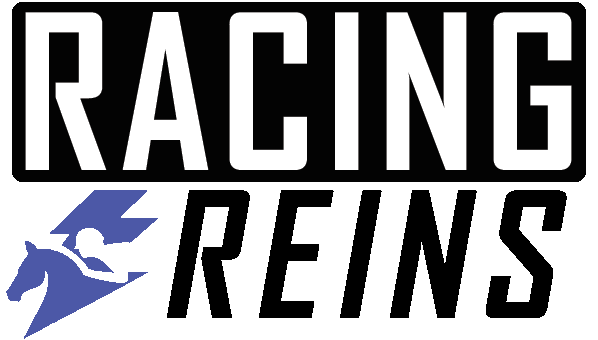
The New York Thoroughbred Horsemen’s Association (NYTHA) is electing a new president during a time of significant change in the state’s horse racing industry, with trainer Chad Summers being one of the candidates. Summers, who has held a license since 2017, believes the NYTHA needs a representative who is actively involved in the industry and wants to address rising costs, improve workers’ compensation policies, and ensure smaller barns are not overlooked.
‣ The New York Thoroughbred Horsemen’s Association (NYTHA) is electing a new president during a time of significant changes in the state’s horse racing industry, including a $455-million overhaul of Belmont Park and the closure of Aqueduct.
‣ One of the candidates for NYTHA president is Chad Summers, a trainer with a diverse background in the industry, who believes that the organization needs leadership with a hands-on understanding of the day-to-day realities of horse racing.
‣ Summers has expressed concerns about the rising costs of training commodities, the need for better workers’ compensation policies, and the importance of supporting smaller barns in the industry. He also advocates for more open communication with the Horseracing Integrity and Safety Authority (HISA).
The New York Thoroughbred Horsemen’s Association (NYTHA) president’s position is up for grabs. This comes at a time of significant change for horse racing in the state.
Belmont Park is about to undergo a $455-million overhaul. After this, Aqueduct is set to close its doors. In a few years, horse racing in New York will look drastically different from today.
This is also a time of tremendous existential challenge for the sport. A recent 60 Minutes expose on the industry’s doping problems highlighted this. The program featured another year of high-profile equine fatalities, including 13 during the summer Saratoga meet.
One of the candidates for the position is trainer Chad Summers. He has held a license since 2017. Before that, he held various positions in the game including hot walker, groom, foreman, racing manager, and clocker’s assistant.
The TDN recently spoke to both Summers and Tina Bond about their bids for NYTHA president. They delved into the specifics of their platform. First up today: Chad Summers. The following has been heavily edited for brevity and clarity.
TDN asked Summers about his statement that “NYTHA has not been represented by someone with boots on the ground. We need our voices heard now more than ever.” Summers responded by saying that when Rick Violette was in charge, his door was always open. He was always available to answer questions or provide guidance.
Unfortunately, over the last six years, the management has not had skin in the game. They own very few horses. They’re not there on the day-to-day. They’ve been there for the ribbon-cutting ceremonies, but they haven’t been there on the Tuesdays in February. Summers feels that the horsemen and women are best represented by somebody who’s in the trenches with them.
TDN also asked Summers about his plans to tackle the sharply rising costs of everyday training commodities. Summers explained that NYTHA is in a unique situation because most every track is represented by an HBPA organization. These organizations have trainer co-ops designed to protect their own investments or make them part-owners of businesses such as bedding or feed companies. This would allow them to cut costs and manage it themselves. These are things that need to be examined and priced out.
Summers gave an example of the cost of shavings in Ohio at Mahoning Valley being $5.59 a bag. In New York, he’s paying $12.18. That needs to change. When you’re paying $50 for a bale of hay, $30 for a bag of feed and minimum wage is set to rise to $17 an hour in New York, it is a struggle for trainers to stay in business.
Owners are not happy paying the fees on the day rate. They think that trainers are making money on the day rate, which Summers assures they are not. He believes they need to work together to come up with solutions to try and save costs while still allowing their horses the luxuries that they’re used to and they’re entitled to.
As NYTHA president, Summers would be presiding over a period of great upheaval in New York racing. He sees the NYTHA president’s responsibilities as representing his organization’s views and thoughts. This involves making phone calls and talking to constituents to figure out what everybody wants. He also emphasized the importance of NYTHA’s seat on the [NYRA] board, and the need for their voice to be heard in those board meetings.
A recent NYTHA-backed study by three interns from Yale highlighted some worrying industry-wide declines over the past 20 years. Summers sees his role in helping to reverse some broader industry declines as crucial. He believes they need to work together with the other states, racetracks, and HBPAs to make a difference.
Summers also mentioned the need to start with workers’ comp policies. He believes they need to come up with a workers’ comp plan where people aren’t afraid of coming to race in New York because of the fees they have to pay. He also mentioned the need to improve field size and handle, which are all based on people wanting to be in New York.
He also spoke about the need to help smaller barns. He believes NYRA needs to understand that they need the middle trainer instead of just catering to the upper echelons. He also mentioned the need for NYRA to be successful and to have pride in their work.
Shifting gears to HISA, Summers believes HISA needs to understand that they have a voice in this and they rule with an iron fist sometimes. He agrees that the sport does need federal oversight, but he also believes that the rules they are coming in with make no sense.
Summers also addressed his personal experience with the program’s rules on intra-articular joint injections before timed workouts. He explained that it was a mistake on his part, but he was surprised at the harsh penalty he received.
Finally, when asked about his qualifications for the position, Summers stated that it’s a matter of passion. He believes he has the necessary experience and understanding of the industry to make a difference. He promised that if elected NYTHA President, he won’t stop until every one of their members is happy.
The ballots for the NYTHA elections have already been mailed out. Voting will take place, in person or by proxy, at the NYTHA Annual Meeting, to be held on Wednesday, Dec. 27, the location yet to be decided. Tomorrow: Tina Bond makes her case.
